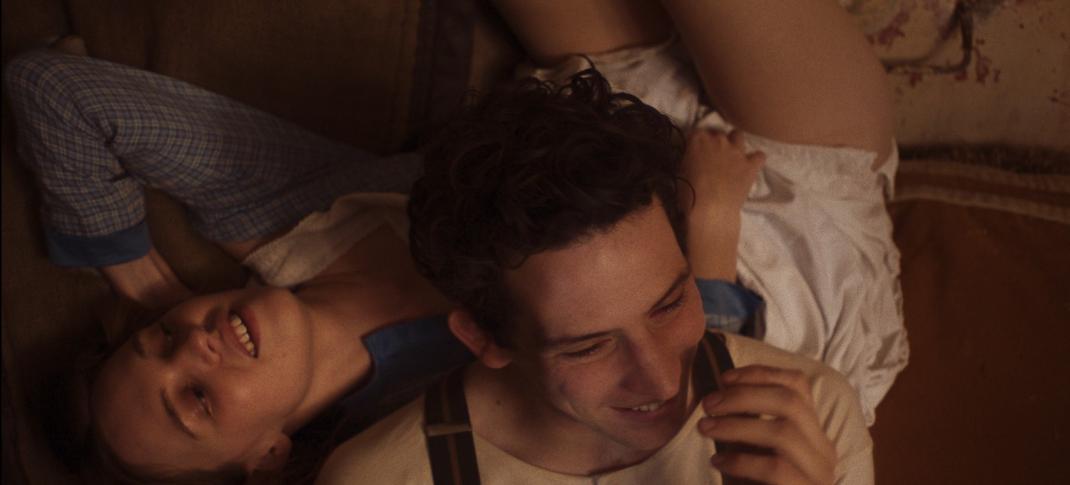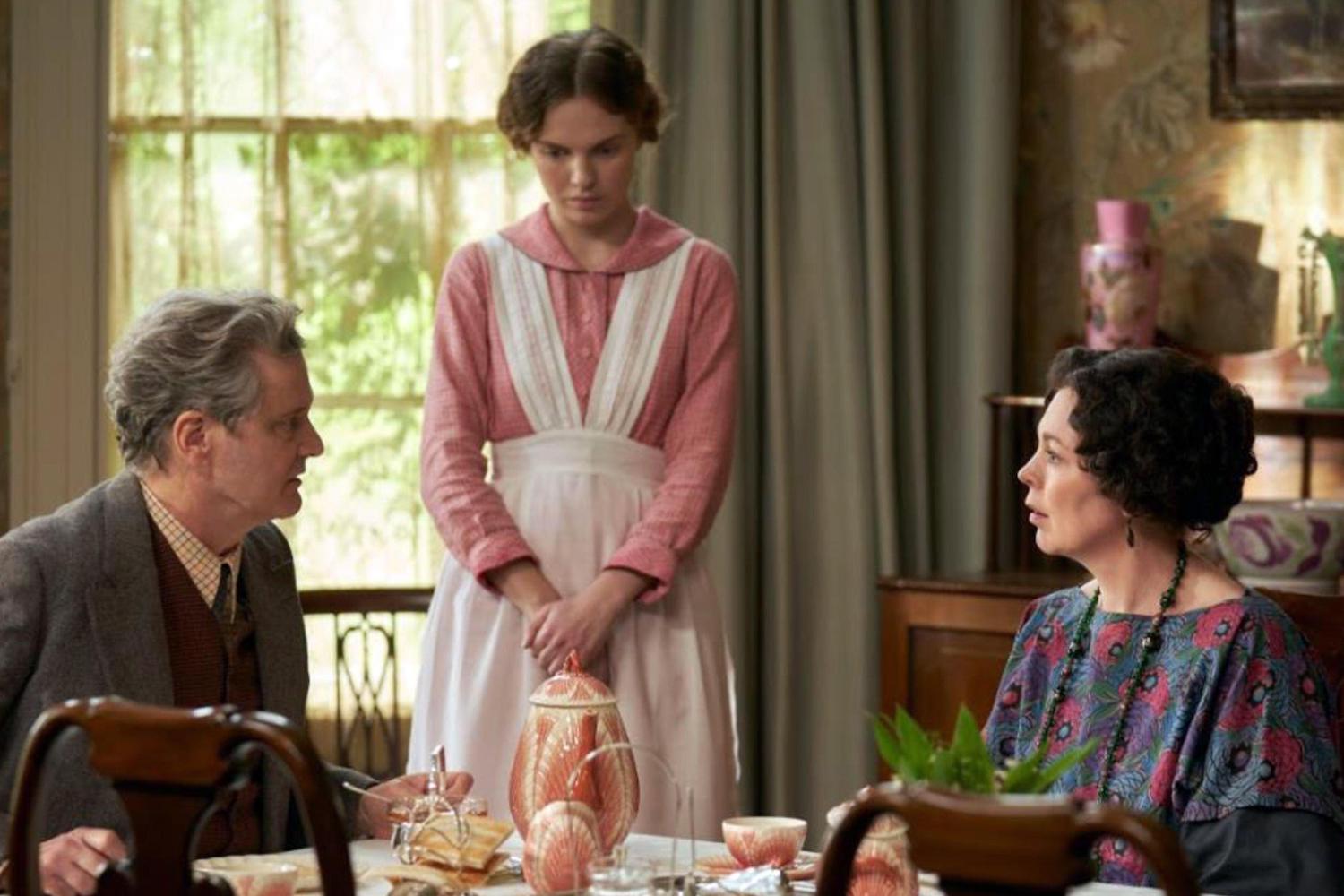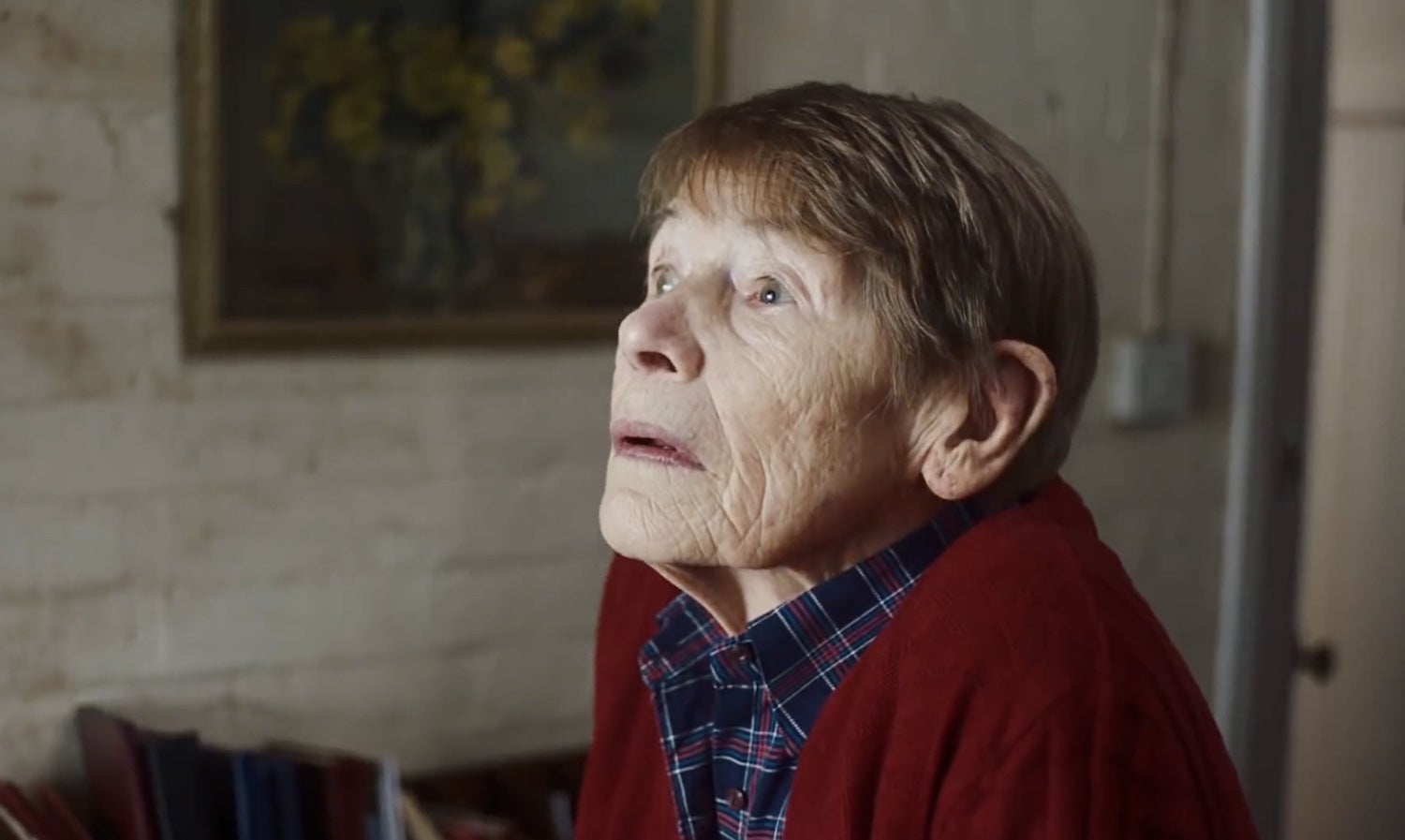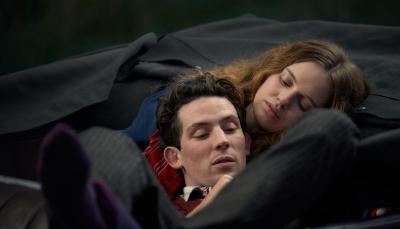'Mothering Sunday' Is a Gorgeous, Thoughtful Film

Directed by Eva Husson and adapted from Graham Swift’s 2016 novella by writer Alice Birch (Lady Macbeth), Mothering Sunday, with its first-rate cast and stunning cinematography, covers what at first seems some very familiar ground. There are the Downton Abbey-esque upper-class families dealing with their grief from the losses of World War I, and not yet ready for the changes in class and privilege that are to come. There’s an upstairs-downstairs romance. But the film takes us beyond the book’s one day of life-changing events and shows us the literary awakening of its heroine, Jane Fairchild played by Odessa Young, (The Staircase).
“Once upon a time, before the boys were killed....”
The above quote is the first line of the movie, spoken by Jane Fairchild. It’s a movie about secrets and storytelling, how experiences are changed when they are remembered and shared. Interspersed with the country scenes, all green and gold in early spring, we see glimpses of Jane’s future as a writer. Much later, and after her life has changed, a lover asks her when she became a writer. Three times, she replies — she was born, she was given a typewriter, and the third time — she’s not telling him.
Jane is an orphan, working as a servant for the Nevin family, Godfrey, played by Colin Firth (The King’s Speech), and Clarrie, played by Olivia Colman (The Favourite). It’s about the only prospect open to a young woman of her class and background. The Nivens’ hushed house is filmed initially as a series of still lives, and we realize that its owners are barely present: Mrs. Niven is frozen in grief, and Mr. Niven is a broken and blank man who communicates mainly with polite banalities.
Yet now and again Mr. Niven’s awareness does extend to Jane’s welfare. She is an orphan and today is Mothering Sunday, 1924, the fourth Sunday in Lent according to the Church of England calendar. Traditionally, female servants were given the day off to visit their mothers. In answer to Mr. Niven’s inquiry on her plans for the day, she replies that she is going to ride her bicycle out and spend the day reading under a tree. Mr. Niven, who allows her to borrow books from his library, approves. But Jane’s plans are quite different. She has an assignation with her lover, Paul Sheringham played by Josh O’Connor (The Crown).
Paul is the son of another upper-class family. The Sheringhams and Nivens are planning to lunch together at a restaurant since they are without servants until the evening, joined by the Hobday family. Their daughter, Emma played by Emma D’Arcy (House of the Dragon) is officially engaged to Paul, with the marriage coming up in a matter of weeks. Paul is the only surviving son of the circle and has a lot on his shoulders — not least the expectations his family place on him, and his own grief for his dead brothers.
Paul is planning to arrive late to the lunch party on the pretext of studying for the Bar. He’s alone in the house, and jokes about opening the front door to Jane, a reversal of servant-employer roles, but without malice. His relationship with Jane is passionate, playful, and affectionate, and they are extraordinarily at ease in each other’s company. They create a bubble in which class differences and Paul’s family expectations are erased. Is the affair working only because it’s on borrowed time? They both know this will be their last time together.

Paul leaves to join the lunch party, and Jane wanders through the deserted house naked, touching surfaces, exploring scents and textures, and ending up in the kitchen with a pie and a bottle of beer. (If a lot of nudity, male and female, bothers you, you have been warned.) But when the phone rings, she realizes that soon regular life will resume, and leaves the house with a few souvenirs, including an orchid bloom.
Beside the river, the lunch party waits for Paul, and Clarrie Niven unexpectedly weeps for her lost children. Her companions mostly ignore her, not able to deal with such an explosion of grief. Emma distances herself from the group, resigned to her engagement with Paul, but still disturbed by the death of his elder brother. Because they had not become engaged, she was not allowed to formally grieve him. She’s startled to be addressed by a cheeky, friendly Irish waiter, an unthinkable liberty by someone of his class, and a sign of the changing times.
Jane cycles back to the Nevins’ house, startled to find Mr. Nevin, clearly upset, having driven home alone. Paul is dead, killed in a car crash. He asks Jane to accompany him to the Sheringham’s house, to make sure that there’s nothing in the house to cause “further distress." (This may be a reference to a suicide note or his way of telling Jane privately her lover is dead, giving her the chance to clear out any evidence.) On the pretext of needing a glass of water, she escapes to the kitchen, where she gives way to a howl of grief. At the house, the Sheringham’s maid, Ethel (Charlie Oscar) closes the bedroom window Jane left open, changes the sheets, and clears up the cigarettes and books. She’s doing it for Jane’s sake as much as for her employers'.

That night, Clarrie, her silence broken by her circle’s new tragedy, rants as Jane helps her prepare for bed. It’s a bitterly cruel speech in which she tells Jane she is lucky she has no family and was bereaved at birth. Shortly after, Jane tells Mr. Niven that she is leaving them to work in a bookstore. It’s there she is given her typewriter, by the bookstore owner who clearly sees she is an exceptional young woman, as does her lover Donald (Sope Dirisu), who presents her with a copy of A Room of One’s Own at the beginning of their relationship. She’s transformed, her hair cropped to a bob, an artist at work, with Donald as inspiration and support.
Donald: "You can summon the memory. You can describe it, claim it. Reword it and imagine it for me. Can’t you, Jane. For me. For you. For you."
“Maybe all the men in my life have to die to write this great book,” she comments, angry and bereft, after Donald's death. But, once again she refuses to let loss and grief imprison her, and we flash forward to the present, meeting Jane Fairchild in old age (Glenda Jackson), now an acclaimed writer. A crowd of reporters clusters at her door after she wins a major literary prize, awaiting her appearance. She steps forward to make her expected acceptance speech, and behind the crowd, she sees the young Jane Fairchild.
Mothering Sunday is now on demand at Amazon Prime.



